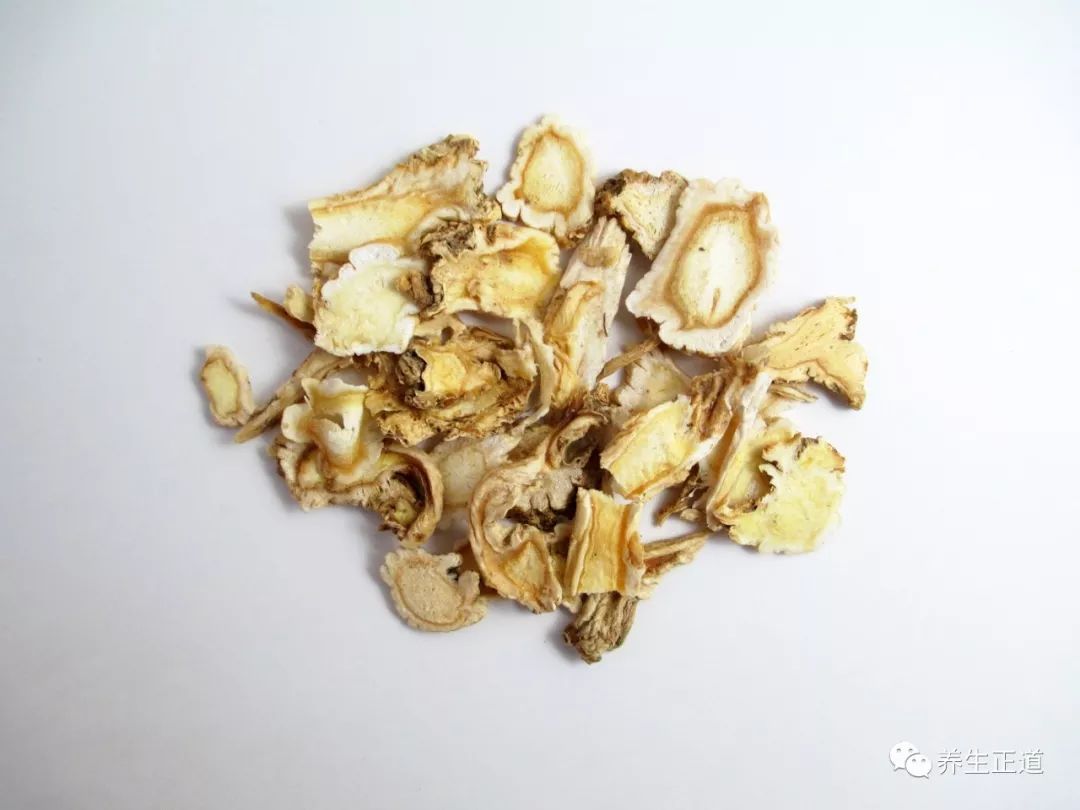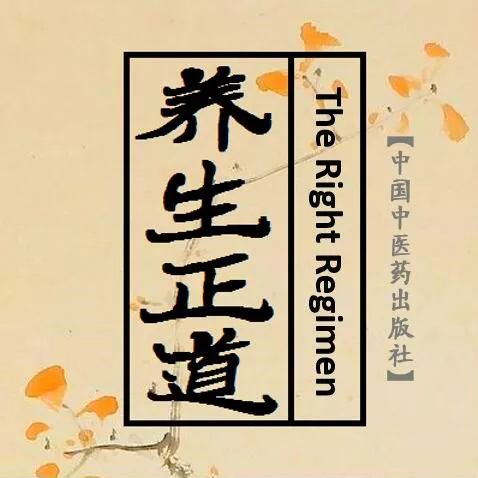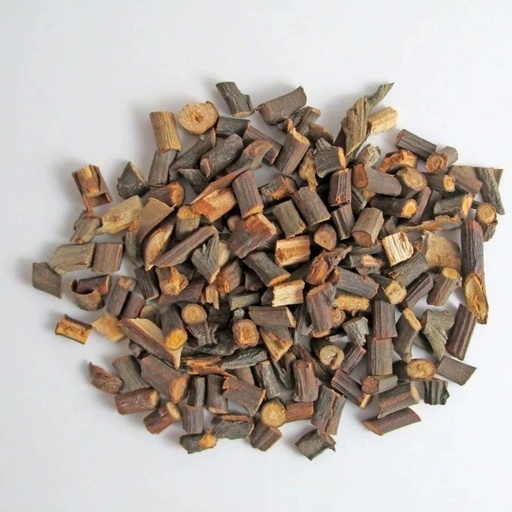↑ Click the above 【Health Preservation Path】 to follow us ↑
Abstract:
In Traditional Chinese Medicine (TCM), the principle is “treat the symptoms urgently, treat the root cause gradually.” This is particularly evident in the treatment of external cough. Teacher Xia discusses the treatment of external cough using the three methods of “Disperse, Clear, and Moisturize,” and combines clinical insights with cases of internal injury, providing a clear reference for clinical differential diagnosis and medication.
The Third Method: Disperse, Clear, and Moisturize – Recognizing Mixed Internal Injury Patterns
Author: Xia Yijun, Organizer: Huang Huang
Cough can be classified into external and internal injuries, and treatment should prioritize the former. If external pathogens are not treated, they can lead to internal injuries over time, and internal injuries can exacerbate external conditions, thus physicians must not take this lightly. In treating external cough, I pay attention to three aspects: Disperse, Clear, and Moisturize. Here is a brief description:
Disperse
Disperse means to disperse, circulate, and scatter. The lungs are the highest organ, responsible for respiration and governing the body’s Qi; they also control the dispersal of Qi to the skin and hair. When wind pathogens invade, they first attack the lungs, leading to stagnation of lung Qi, resulting in cough, phlegm, chest tightness, aversion to wind and cold, fever, nasal congestion, and runny nose.
The treatment should focus on dispersing the lungs, which has two principles: first, using light, bitter, and slightly pungent herbs to promote lung Qi circulation and restore its descending function; second, employing herbs with dispersing properties to expel wind and induce sweating, thus promoting the circulation of Qi at the skin level. The herbs I commonly use for dispersing the lungs are Xing Ren (Apricot Kernel), Jie Geng (Platycodon), and Qian Hu (Hogfennel). Xing Ren is bitter and helps to disperse stagnation, descend Qi, and stop cough; Jie Geng opens and raises lung Qi and expels phlegm; Qian Hu can descend Qi and resolve phlegm while dispersing wind-heat. The combination of these three herbs aligns well with the principles. If wind-cold is present, add Su Ye (Perilla Leaf) and Jing Jie (Schizonepeta); if wind-heat is present, add Yin Hua (Honeysuckle), Qiao (Forsythia), Sang Ye (Mulberry Leaf), and Ju Hua (Chrysanthemum); if summer heat is present, add Yi Ren (Job’s Tears), Pei Lan (Eupatorium), He Ye (Lotus Leaf), and Qing Hao (Artemisia).
When using the dispersing method, the herbs should be light and clear; it is crucial to avoid heavy, cold, bitter, or astringent herbs. Lu Dingpu in “Cold Lodge Medical Talks” states: “The greatest taboo in using herbs is mixing; having one or two incompatible herbs in a formula makes it difficult to see results. … A patient with a warm disease, strong heat without sweating, has not eaten for seven days, is thirsty, has chest tightness, cough, headache, and a pulse that is much stronger on the right than the left. Hangzhou physicians prescribed Lian Qiao (Forsythia), Gua Lou (Trichosanthes), Niu Bang Zi (Burdock Seed), Dong Sang Ye (Mulberry Leaf), Ku Xing Ren (Bitter Apricot Kernel), Hei Shan Zhi (Black Mountain Peach), Xiang Bei (Conch Shell), Zhu Ye (Bamboo Leaf), and Lu Gen (Reed Root). All herbs matched the disease, but unfortunately, they included Ling Yang Jiao (Antelope Horn) and Zhi Ke (Bitter Orange), and after taking one dose, the patient did not improve, feeling tight in the chest and the heat intensified. They sought my diagnosis. I removed Ling Yang Jiao and Zhi Ke, added Dan Dou Chi (Fermented Soybean) and Bo He (Mint), and after one dose, the patient sweated all over, felt cool, and could eat.” Lu indeed had a discerning eye.
The dispersing method is not limited to the initial onset of cough; even if the illness has persisted for many days, as long as symptoms such as unproductive cough, chest tightness, red or swollen throat, and nasal obstruction are present, one should still emphasize dispersing. Additionally, observe the degree of internal heat; in dispersing the lungs, one can cautiously add slightly bitter and clear herbs such as Hei Shan Zhi and Dan Qin (Scutellaria) if lung fluids are depleted and the above symptoms are present. If the tongue coating is yellow and thick, Bai Bu (Stemona) is best for opening the lungs; it is noted that Bai Bu can replace Ma Huang (Ephedra) in dispersing the lungs.

Image: Jie Geng (Platycodon)
Clear
Clear means to clear heat, transform phlegm, and regulate the lungs. If the external pathogen is not resolved, it can enter the interior and transform into heat, causing fluids to become phlegm. This phlegm-heat can lead to symptoms such as cough with easy sweating, or profuse sweating during sleep, resembling night sweats; phlegm is thick and sticky or yellow and purulent, with a slippery pulse, especially on the right hand, and a yellow tongue coating. Due to internal heat forcing fluids outward, sweating occurs. If misdiagnosed as exterior deficiency with spontaneous sweating or yin deficiency night sweats, it would be a mistake. Simply using Yu Ping Feng San (Jade Windscreen Powder) to strengthen the exterior and tonify Qi would make it difficult to expel the pathogen; using Dang Gui Liu Huang Tang (Angelica and Six Yellow Decoction), which is very bitter and cold, would exacerbate the condition.
Additionally, for those with excessive sweating, dispersing lung herbs should be used cautiously to prevent depleting lung Qi and Yin. In my clinical practice, I often select Wei Jing Tang (Reed Stem Decoction) without Tao Ren (Peach Kernel), adding Nan Sha Shen (South Sand Ginseng), Zhi Mu (Anemarrhena), Bei Mu (Fritillaria), and Huang Qin (Scutellaria), which is stable and effective. Wei Jing Tang originally treats lung abscess, and the herbs in the formula, especially Lu Gen, are sweet and cold, good for clearing lung and stomach heat.
Zhang Xichun stated: “Its nature is cool, able to clear lung heat, regulate lung Qi, and its sweet flavor nourishes fluids, making it excellent for clearing and nourishing lung Yin.” Dong Gua Zi (Winter Melon Seed) is sweet and cold, clears lung heat, and regulates spleen dampness, making it a wonderful formula for clearing lung heat. Zhi Mu paired with Bei Mu is known as Er Mu San, originally treating lung tuberculosis with heat, taking Zhi Mu to nourish the kidneys and clear the lungs, and Bei Mu to transform phlegm and drain the lungs; here, it is used to clear lung and stomach Qi heat. Nan Sha Shen moistens the lungs and transforms phlegm heat, and Huang Qin is good for clearing the upper jiao, which I prefer to use. If there is severe heat and thirst, add Tian Hua Fen (Trichosanthes Root); if there is severe cough and chest tightness, add Pi Pa Ye (Loquat Leaf) and Sang Pi (Mulberry Bark).
Moisturize
The lungs are delicate organs that prefer to be moist. If the pathogen has been mostly expelled but the cough persists, or if the body is weak and has a chronic cough, it is advisable to use gentle and moistening products. If lung fluids are depleted, with internal heat causing dry cough, dry mouth, little appetite, and difficult bowel movements, with a smooth tongue, it is advisable to use sweet and cool moistening herbs, such as Ye Shi Yang Wei Tang (Ye’s Stomach Nourishing Decoction), or in severe cases, Yu Shi Qing Zao Jiu Fei Tang (Yu’s Clearing Dryness and Rescuing the Lungs Decoction).
There is also a type of chronic cough with white, scant phlegm, chest tightness, and a yellow-white tongue coating, which is difficult to expel and slightly rough in texture; this is often due to the lungs losing their moistening ability, causing Qi to stagnate. In this case, sweet and cool herbs would assist phlegm, while warming and drying would exacerbate heat. The treatment should focus on warming and moistening methods, such as Bai Bu, Zi Wan (Aster), Kuan Dong Hua (Coltsfoot Flower), Zhi Su Zi (Fried Perilla Seed), Xing Ren, Zhi Ke, and Er Chen Tang (Two Aged Decoction).
According to “Ben Cao Zheng Yi,” Zi Wan is “soft and moist, although it is said to be bitter and pungent, it is warm and not as dry and fierce, specifically able to open and relieve lung stagnation, stabilize wheezing, and descend Qi.” Kuan Dong Hua is often paired with Zi Wan, and after honey frying, it becomes even more moist; Bai Bu moistens and stops cough, while Su Zi moistens and descends Qi. “Ben Jing Feng Yuan” states: “All fragrances are dry, only Su Zi is moist… its ability to descend Qi makes it suitable for those with chest tightness… it is a good agent for relieving wheezing, stopping cough, transforming phlegm, and smoothing Qi.”
Mixed Internal Injury
For general external cough, mastering the above three aspects is not difficult. However, in clinical practice, when encountering individuals with imbalanced internal Qi, the external cough often involves mixed internal injury mechanisms, which should be recognized.
1Mixed Qi Fire
For those with a constitution of yin deficiency and liver excess, or prolonged emotional distress transforming into fire, their cough often involves Qi fire. Symptoms include choking cough with little phlegm, chest tightness, Qi counterflow, throat discomfort, flushed face, possible hemoptysis, and a pulse that is often wiry and strong.
Qi fire originates from the liver, and its pathological characteristics are to rise and reverse, easily disturbing Yin and moving blood. When Qi fire invades the lungs, the clearing and descending functions are obstructed, leading to a chaotic chest area, hence the symptoms of chest tightness and Qi counterflow; Qi fire injures the nutritive and collateral vessels, resulting in hemoptysis and flushed face, with a noisy pulse, indicating the disturbance of Qi fire.
The treatment can be divided into two categories:
One is to drain fire and calm the lungs. If the tongue is red with a yellow coating and the pulse is wiry and strong, use bitter and cold herbs heavily, such as Huang Lian (Coptis), Zhi Mu, Hei Zhi (Black Gardenia), and Dan Pi (Moutan Root). If there is chest and rib distension and pain, add Chen Xiang (Agarwood) and Zhi Ke. Huang Lian is known for treating damp-heat in the middle jiao, but it can also pacify the real fire of the organs. “Han Shi Yi Tong” states: “For diseases of the fire division, Huang Lian is the main herb.” When the Qi fire in the liver meridian is rampant, only the bitterness of Huang Lian can drain it; paired with Zhi Mu, it is cold and moist, reducing dryness. I often use it without seeing the drying side effects of Huang Lian. Moreover, Zhi Mu has a sinking nature, making it excellent for treating night cough and severe cough.
The second is to moisten the lungs and pacify the liver. If lung fluids are injured and liver Qi fire is unsettled, accompanied by symptoms such as headache, insomnia, dry mouth, thin white coating, or red tongue with little coating, select Dai He San (Dai’s Shell Powder), Xuan Fu Hua (Inula), Xing Ren, Gua Lou, Zhi Ke, Sang Pi, Bai Ji Li (Tribulus), and Nan Sha Shen, Chuan Shi Hu (Dendrobium), Shi Jue Ming (Abalone Shell), and Dan Pi. For cough due to Qi fire, avoid using ascending pungent herbs, especially Jie Geng.
2Mixed Phlegm-Damp
For those with a history of phlegm-damp who are affected by wind-cold, in addition to treating the wind-cold exterior symptoms, they often experience chest and epigastric fullness, with abundant and thin phlegm, and a white and slippery tongue coating. In this case, add Er Chen Tang and Chuan Po (Perilla) to the warming and dispersing formula.
Even though the body may have internal fire, the tongue coating may not necessarily be yellow and dry, and the dry mouth may not be very obvious. As stated in the “Wet Heat Disease Chapter”: “For those with phlegm-damp, although the heat is rampant, the coating remains thick and slippery.” One should carefully examine the pulse, which may be wiry and thin, or floating and abundant.
Furthermore, even if there is a lot of phlegm, if it is thick and difficult to expel, it is not like the clear and thin phlegm of cold-damp, which can be easily expelled. Phlegm-damp patients are most prone to lingering coughs, and subsequent treatment should also consider strengthening the spleen and drying dampness, such as using Xiang Sha Liu Jun Zi Tang (Aromatic Sand Six Gentlemen Decoction).
3Mixed Kidney Deficiency
For those with a constitution of kidney Qi deficiency, if they are not careful, cold pathogens can directly invade the deficient area, leading to deep-seated pathogens that are difficult to expel, presenting symptoms such as aversion to cold, fever, thirst with a preference for warm drinks, hoarse cough, throat pain, pale red complexion, low back pain, thick white greasy tongue coating, and a tight pulse. In this case, use Ma Fu Xiao Xin Tang (Ma’s Attach and Warm Decoction) to treat both the Tai Yang and Shao Yin meridians. Once the Yang Qi is stimulated, the hidden pathogens can be expelled, leading to slight sweating and relaxation of the skin, allowing lung Qi to circulate smoothly.
If the patient has a history of kidney essence deficiency, and the floating Yang is easily disturbed by external pathogens, one may see no fever but a rapid pulse that is weak upon palpation; feelings of frustration or heat in the chest; dizziness and tinnitus; frequent dreams or insomnia; cough with night sweats; abdominal distension; low back pain; a red tip of the tongue with yellow-white coating. In clinical practice, if these symptoms are present, even with lung Wei symptoms, it is not advisable to use Jing Jie, Fang Feng, Jie Geng, or Qian Hu, as these pungent dispersing lung herbs may disturb the floating Yang and cause anxiety. Treatment can include Gui Zhi Jia Long Gu Mu Li Tang (Cinnamon Twig Decoction with Dragon Bone and Oyster Shell) plus Xuan Jing Shi (Xuan’s Essence Stone), Shi Jue Ming, Dan Pi, and Fu Shen (Poria).
Xuan Jing Shi not only nourishes Yin and lowers fire but also has the function of regulating Qi. Once the counterflow is settled and the floating Yang is stabilized, the cough and Qi counterflow will naturally improve. If the above symptoms are accompanied by yellow and turbid urine, nocturnal emissions, abdominal distension, and a red throat, it indicates kidney deficiency with counterflow and internal fire, and one should combine it with Zhi Kidney Pills. Using Rou Gui (Cinnamon) to warm kidney Yang, expand Qi transformation, and draw fire back to its source; Zhi Bai Di Huang Wan (Anemarrhena and Rehmannia Pill) to nourish Yin and drain fire, thus harmonizing Yin and Yang in the kidneys. When treating kidney deficiency with cinnamon, attention should be paid to dosage. Use 2g of Gui Zhi for a thin tongue coating and 3g for a thick coating; excessive use may have the side effect of pungent dispersal. Rou Gui should be selected for its thick and oily texture.

Image: Gui Zhi (Cinnamon)

In summary, dispersing is aimed at the stagnation of lung Qi, focusing on the word “stagnation”; clearing is aimed at lung heat, focusing on the word “heat”; while moisturizing is derived from the physiological characteristics of the lungs as delicate organs that prefer moisture and dislike dryness, which should be noted for patients with deficiency and chronic cough.
As for the treatment of mixed Qi fire, mixed phlegm-damp, and mixed kidney deficiency, the focus is not on dispersing the lungs but on calming the lungs, so dispersing and cough-stopping herbs should not be used indiscriminately. Generally, coughs often involve phlegm, regardless of the pattern, and some lung-regulating and phlegm-transforming herbs can be selected as needed, such as Ju Hong (Tangerine Peel), Bei Mu, Gua Lou Pi (Trichosanthes Peel), and Yu Jin (Curcuma).

Recommended Reading
《Traditional Chinese Medicine Qi Talks – Those Who Love Life Are Not Alone》
Renowned TCM physician and lecturer, Himalaya Radio Network signed host Qi Yingzhou invites you to join him in discovering the beauty of TCM! Together, we will explore the beauty of TCM and life, and meet a better version of ourselves. Those who love life are not alone; let us meet in TCM Qi Talks!

Health Preservation Path
Copyright Statement
This article is selected from 《Golden Mirror of Famous Doctors in Ancient and Modern Times – Cough and Lung Distension Volume (Part 1)》》,compiled by Dan Shujian and Chen Zihua, published by China Traditional Chinese Medicine Press, copyright belongs to the relevant rights holders, please indicate the source when reprinting.Images are copyright images purchased by the publisher from the image network, please do not steal images.Commercial cooperation or submissions: [email protected]
Click “Read the original text” for discounts on book purchases

